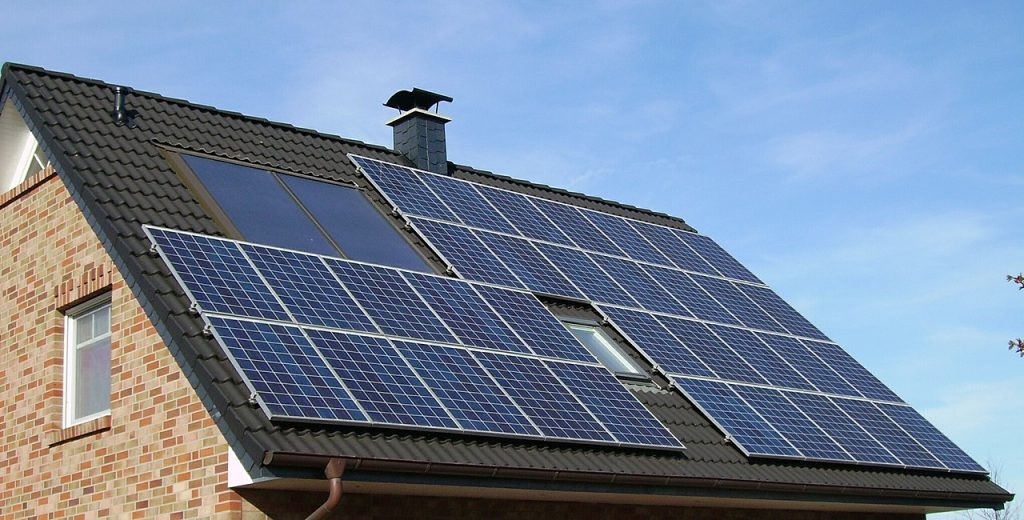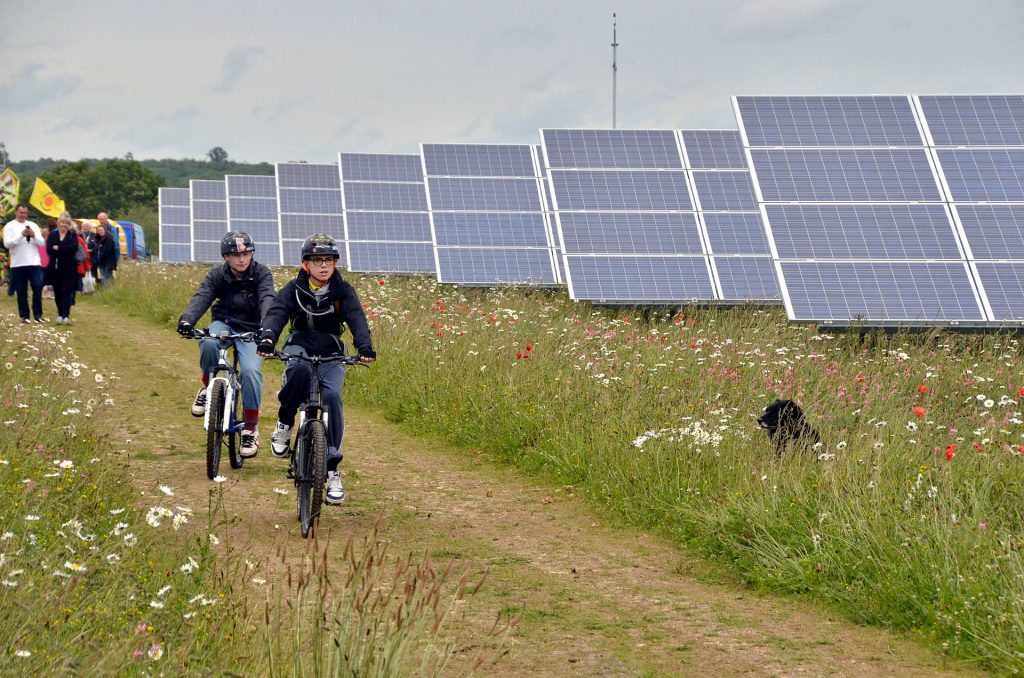It’s summertime. And whether you’re a Boulder or Denver-area homeowner pumped to spend the next few months exploring the nearby mountains, or a Boston-area resident excited to catch as many games at Fenway Park as possible, this summer is sure to be filled with plenty of fun and lots of sunshine. This abundance of sun makes it a great time of year for cramming in as many outdoor activities as possible—and for considering taking advantage of solar power for your home.
Solar is an awesome home upgrade that can help slash your carbon footprint and reduce your home energy costs. But should you use rooftop solar or community solar? What are the benefits and considerations of each? And how do you appropriately size your solar array for your home? Today, we’re digging into what homeowners across the country need to know about solar so they can make the choice that’s right for them.
What’s the Difference Between Rooftop Solar vs. Community Solar?
Much like making home electrification upgrades, installing solar is a great way to make your home more environmentally friendly, energy efficient, and comfortable. It’s no wonder that many homeowners choose to pair these upgrades for maximum benefits!
But when it comes to solar, there are different options available. And it can be difficult to know what’s best for your home and unique situation. Let’s explore some key differences between rooftop solar vs. community solar.
Rooftop Solar

As its name suggests, rooftop solar is a solar system that goes on your roof and provides power specifically to your home. Rooftop solar systems are designed based on your home’s unique energy needs: After assessing your home’s energy usage, experts will make recommendations on the size of your solar array to ensure you capture enough energy to power your home (more on this later!). If you produce excess energy, it can either be stored in solar batteries or sold back to utility companies through net metering.
Community Solar

Where rooftop solar is an individual solar system that provides power directly to your home, community solar works a bit differently. It’s an option for those that can’t install solar directly at their property or who are looking for a way to use solar without purchasing their own rooftop solar system.
Those that choose community solar either purchase a portion of a community solar array or pay a subscription fee for a portion of the energy a community system produces. Unlike rooftop solar systems, the energy generated from a community solar project is not used to power owners’ and/or subscribers’ homes directly. Instead, it replaces (or reduces) what they pay their utility company for electricity.
Benefits and Considerations of Rooftop Solar and Community Solar
Using either rooftop or community solar can help reduce your home’s environmental impact. But how can homeowners determine which is best? Each has its own benefits and considerations, and different solutions work for different people. Here are a few things to consider about each option:
Rooftop Solar
Benefits:
- The solar array can be sized to meet your home’s precise energy needs
- Savings available via tax credits (i.e., through the Inflation Reduction Act), state and local incentives, rebates, etc.
- More significant financial benefits over time
- Allows you to store excess energy produced in solar batteries for later usage (woohoo energy independence!)
- Reduces reliance on fossil fuels
Considerations:
- More costly installation and equipment costs
- Not all roofs can support rooftop solar: structural integrity, roof orientation and pitch, roof space and obstacles, age and condition of the roof, and local regulations and aesthetics are all factors that should be taken into consideration
- Important to start with home electrification upgrades (i.e., heat pumps) first, so you can properly size your solar array (more about why we recommend this here!)
- If you decide to move after installing a solar system in your home, the buyer of your house would need to take over the responsibilities and costs associated with the solar installation—it’s important to check the contract to understand if and how the solar system can be transferred to the new homeowner
Community Solar
Benefits:
- Allows greater access to solar (i.e., for renters, multifamily units, roofs not equipped for solar panels, etc.)
- Lower up-front costs, since you are not paying for your own equipment
- Typically offers a lower rate for electricity than you would receive from your utility company
- If you move but stay in a similar area, you will likely be able to continue to partake in your community solar project
- Reduces reliance on fossil fuels
Considerations:
- Not eligible for the same rebates and incentives offered for rooftop solar installations
- Since you don’t own any of the equipment, you won’t get any money back in return for your investment
- Not available in all areas
Next Steps: Rooftop Solar vs. Community Solar
Whether you opt to install rooftop solar or decide to use community solar, you’re making a choice that’s good for you—and for our environment. Using solar energy significantly reduces your carbon footprint. And, when used alongside home electrification upgrades, can help make your home more comfortable and energy-efficient.
—
Want to learn more about home electrification but unsure where to start? Check out our free tool, Your Electrification Roadmap®. It uses your individual priorities and preferences to simplify your electrification journey.